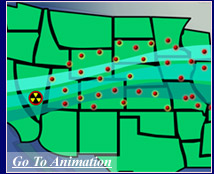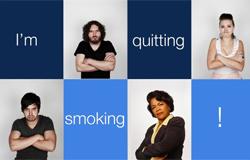
One of the hopeful messages from cancer research is that most of the cases of cancer are linked to environmental causes and, in principle, can be prevented. Together, the National Cancer Institute (NCI) and the National Institute of Environmental Health Sciences have recently published a new booklet titled “Cancer and the Environment,” which focuses on the agents in the environment that cause cancer and what we can do to lower our cancer risk. Environmental causes include both lifestyle factors such as smoking and diet, as well as exposure to agents in the air and water. The following interview with Aaron Blair, Ph.D., the chief of the Occupational Epidemiology Branch in NCI’s Division of Cancer Epidemiology and Genetics, will address the contribution of various agents to our overall cancer burden.

 NCI NewsCenter
NCI NewsCenter NCI Budget Data
NCI Budget Data Visuals Online
Visuals Online NCI Fact Sheets
NCI Fact Sheets Understanding Cancer Series
Understanding Cancer Series
